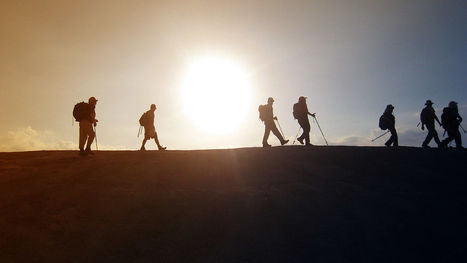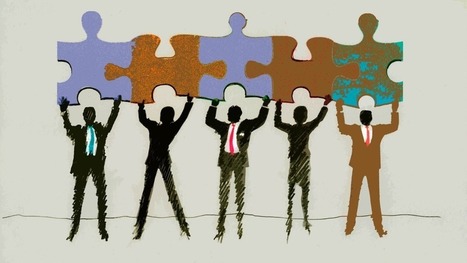We can't be the alpha dog all of the time. Whatever our personality, most of us experience varying degrees of feeling in charge. Some situations take us down a notch while others build us up.
New research shows that it's possible to control those feelings a bit more, to be able to summon an extra surge of power and sense of well-being when it's needed: for example, during a job interview or for a key presentation to a group of skeptical customers.
"Our research has broad implications for people who suffer from feelings of powerlessness and low self-esteem due to their hierarchical rank or lack of resources," says HBS assistant professor Amy J.C. Cuddy, one of the researchers on the study.
In "Power Posing: Brief Nonverbal Displays Affect Neuroendocrine Levels and Risk Tolerance", Cuddy shows that simply holding one's body in expansive, "high-power" poses for as little as two minutes stimulates higher levels of testosterone (the hormone linked to power and dominance in the animal and human worlds) and lower levels of cortisol (the "stress" hormone that can, over time, cause impaired immune functioning, hypertension, and memory loss).
The result? In addition to causing the desired hormonal shift, the power poses led to increased feelings of power and a greater tolerance for risk.
"We used to think that emotion ended on the face," Cuddy says. "Now there is established research showing that while it's true that facial expressions reflect how you feel, you can also 'fake it until you make it.' In other words, you can smile long enough that it makes you feel happy. This work extends that finding on facial feedback, which is decades old, by focusing on postures and measuring neuroendocrine levels."
Via The Learning Factor



 Your new post is loading...
Your new post is loading...

















Nervous about an upcoming presentation or job interview? Holding one's body in "high-power" poses for short time periods can stimulate the brain and inspire confidence.